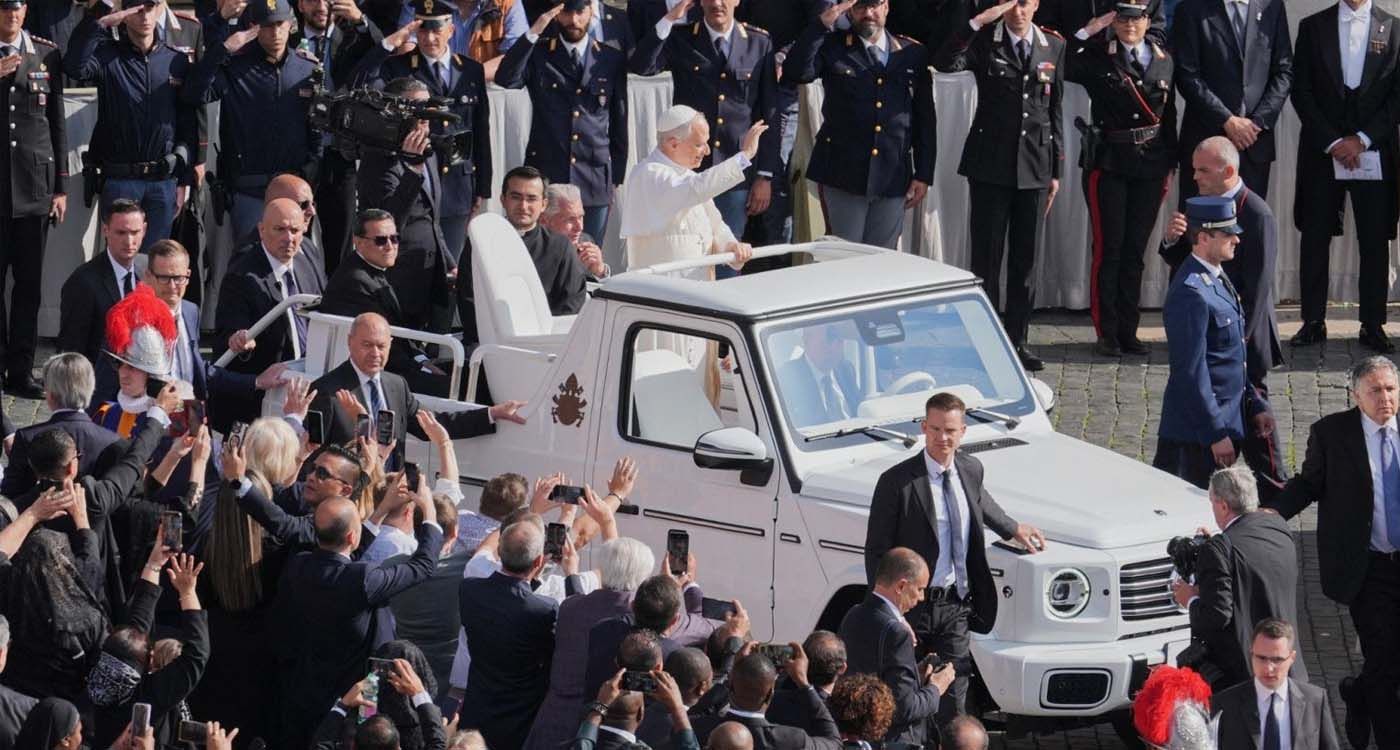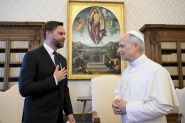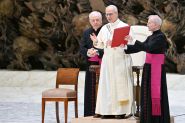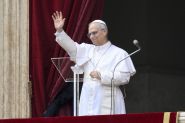- Home
- Middle East
- Pope Leo XIV and the Call for Unity 1,700 Years After Nicaea

Leo XIV aboard the Popemobile on his way to his inaugural Mass, on May 18, 2025. ©POOL/GETTY IMAGES EUROPE/Getty Images via AFP
On May 20, 325, the Council of Nicaea convened, marking a pivotal moment in the life of the Church. Seventeen centuries later, the Church enters a new chapter. Just two days before this historic anniversary, on May 18, 2025, Pope Leo XIV celebrated the inaugural Mass of his pontificate, a convergence of dates that invites reflection. Beneath the great columns of St. Peter’s Basilica, the spirit of Nicaea permeated the liturgy. A unity forged so long ago has resurfaced, not merely as a distant memory, but as a profound and urgent call for our time.
The First Ecumenical Council in history was convened by Emperor Constantine on May 20, 325, with a clear purpose: to restore the unity of the Church in the face of doctrinal divisions. The goal was to define the faith, establish its core foundations and create a common framework for all of Christianity. This was encapsulated in the Nicene Creed, which is still recited by Catholics worldwide every Sunday.
In 2025, the goal remains the same. However, the context has evolved. The Church is spiritually divided, struggling with internal tensions and global fractures.
Pope Leo XIV’s homily at his inauguration was strikingly simple. He presented himself as “a brother who seeks to serve your faith and your joy,” acknowledging that he was chosen “without any merit.”
This humble tone marks a departure from the monarchical posture that the Church has long upheld. A clear message emerges from the new pontiff’s words: unity will not be imposed from above, it must be lived, built and radiated from within.
From Nicaea to Rome: A Renewed Legacy
On May 18, 2025, Pope Leo XIV celebrated his inaugural Mass, just two days before the 1,700th anniversary of the Council of Nicaea, a coincidence that feels almost providential. In 325, the Council affirmed faith in Christ as “true God, born of true God,” striving to heal the divisions.
In 2025, in Rome, Leo XIV assumes leadership of a Church in crisis: a shortage of vocations, debates over governance, liturgical tensions and a growing diversity of perspectives. Unity must no longer be merely theological, it must also be human, pastoral and existential.
Yet, this unity is increasingly challenged by the global context: wars, migration, identity politics and political polarization.
Unity can no longer be a mere slogan. It has become a compass—perhaps the most pressing challenge the Church must confront this century, just as Nicaea was in its time.
Leo XIV understands this deeply. He embraces Pope Francis’ vision of a servant Church, one that is poor in spirit and rich in service. “It is never about binding others through domination, but always, and only, about loving as Jesus did,” declared the new pope, rejecting any notion of vertical power. His approach echoes the conciliar spirit: no authoritarian commands, only a freely-offered faith.
A Faith Lived, Not Just Proclaimed
On May 18, Leo XIV appeared in simple attire, presenting himself not as a sovereign, but as a pastor. A vision is emerging: to reignite spiritual coherence and kindle a shared flame of faith.
Perhaps it is once again in a time of crisis that the Church is called to refocus on the essentials. Just as Nicaea affirmed the faith to keep it alive, in Rome, faith is being renewed to spread throughout a world in search of meaning.
Leo XIV embraces a message of service, rejecting prestige. He calls for an active and lived fraternity.
Read more



Comments